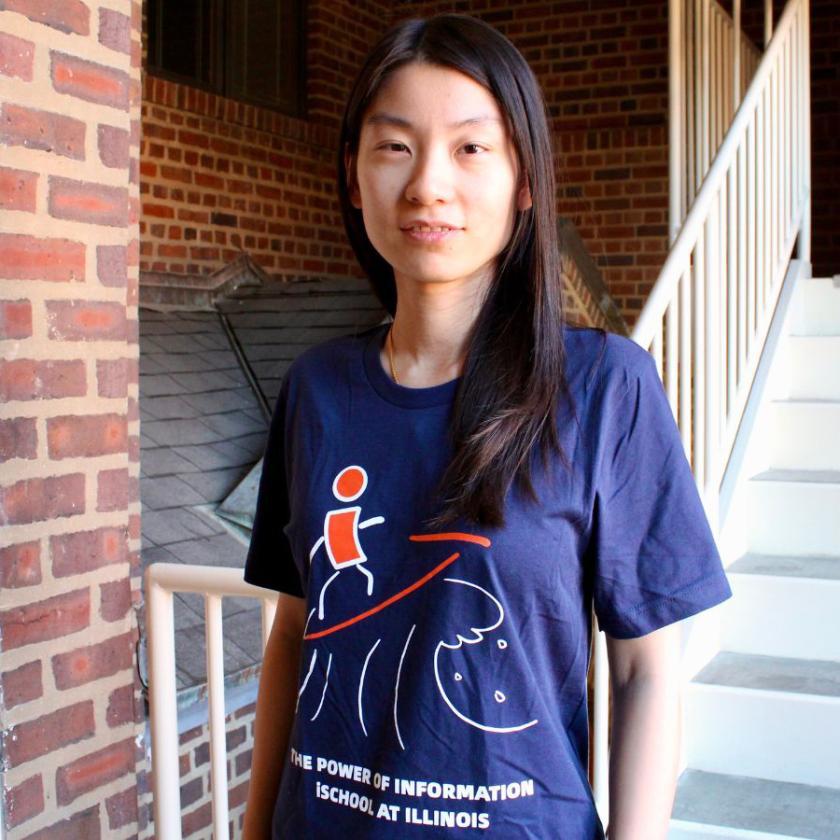
PhD student Meng Li's research focuses on neuro-symbolic AI, with an emphasis on using syntactic analysis and large language models (LLMs) to understand Python notebooks. This cutting-edge research keeps Li "super busy" for much of the term, but in August, she took a brief break from her work and shifted her focus to designing the winning entry for the iSchool T-shirt contest.
While the idea of the design "just popped into my mind," Li has been thinking about the contest for years.
"I saw the contest in 2023 and promised myself I’d participate before graduating," said Li. "It just seemed so cool to imagine people at the iSchool wearing something I designed!"
Her winning design illustrated the iSchool’s tagline: "The Power of Information: The intersection of people, information, and technology." Li used two central elements to translate the tagline into an image. The figure—a blocky, lowercase letter "i"—represents both information and the individual, while the surfboard—a stylized letter "T"—symbolizes technology.
"Together, they capture how people ride and shape the powerful wave of information with the support of technology," said Li. "I feel so honored and excited that my design was selected."
The tagline represented in her design was also a contributing factor into her decision to pursue her degree at the iSchool.
"I chose the iSchool because its focus on the intersection of people, information, and technology aligns closely with how I approach research. I am interested not only in the technology itself, but also in how it can be applied to support people and address real needs," said Li.
Li recently had her co-authored paper, "CRABS: A syntactic-semantic pincer strategy for bounding LLM interpretation of Python notebooks," accepted to the 2025 Conference on Language Modeling (COLM).
"I’m interested in this topic because LLMs still hallucinate and are hard to explain, and I believe that combining neural and symbolic approaches is the key to improving them," said Li. "I work closely with my advisors, Bertram Ludäscher and Timothy McPhillips, both of whom have been very supportive and open to the research directions I’m interested in. I truly appreciate their openness to exploring new ideas, as well as their insightful guidance and constructive feedback."